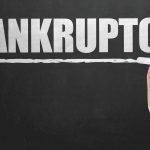How Does Debt Consolidation Work?
With over 25 years of experience in Chapter 7 bankruptcy, Chapter 13 bankruptcy, and debt consolidation, Richard S. Feinsilver, Esq has the knowledge, experience, and passion to help individuals and business owners’ overcome their dire financial situations. During his tenure, Mr. Feinsilver has helped more than 7,500 clients throughout Queens and Long Island’s Nassau and Suffolk Counties rectify their monetary struggles. If you need the legal representation of a highly reputable bankruptcy lawyer, look no further than Richard S. Feinsilver, Esq.
Are you dealing with numerous debts? Do the bills keep piling up with no end in sight, and no way for you to get ahead of them? If so, then you may be considering filing bankruptcy; however, before you contact start searching for a bankruptcy attorney near me, there may be another viable option to help you overcome your financial struggles: debt consolidation.
What is Debt Consolidation and How does it Work?
In short, debt consolidation is the process of combining multiple debts into a single monthly payment. Not only is the single payment easier to manage than multiple payments, but it also reduces the amount of interest you owe on your debts. By consolidating, you can minimize the total amount that you owe and restructure your debts so that you can pay them off faster.
There are two ways that your debt payments can be concentrated into a single monthly payment:
- Transfer all of the debts you owe to a credit card that has a 0% balance transfer fee. Once transferred, you would pay the balance of the card, in full, before the interest rate kicks in.
- Take out a debt consolidation loan. This type of loan has a fixed rate, and the money you secure from the loan would be used to pay off your existing debt. You would then make payments toward the loan, in installments, over a predetermined period of time.
Which option should you choose? It will likely depend on your credit score. If your score is 700 or more, transferring your debts to a 0% interest credit card would likely be the better option. If your score is below 700, a debt consolidation loan would be the better choice.
What Debts can be Consolidated?
You can consolidate virtually any type of unsecured debt, including credit cards, student loans, medical bills, utility bills, and any other debts that owe that have gone to the collection; even taxes. The only debts that you cannot consolidate are secured debts; a mortgage or a car payment, for example. While credit cards are the most commonly consolidated form of consumer debt, you can roll anything that you owe money on into a single monthly payment via consolidation.
When Should You Consider Consolidating Your Debt?
If the following apply to you, then debt consolidation may be the ideal way to alleviate your financial strain:
- The total debts that you owe (less your mortgage) are no more than 40% of your gross income.
- You have a good to fair credit score and you can qualify for a 0% credit card or a consolidation loan with a low-interest rate.
- You consistently make payments on your bills.
- You have a steady income.
- You are committed to paying off the debts that you have consolidated into a single monthly payment.
A perfect example of when consolidating debt is a good idea would be the following: you have several high-interest credit cards, as well as student loan payments. You consistently pay your bills each month, so your credit is in good standing; however, you are unable to pay more than the minimum payment, and therefore, the interest continues to accrue and you are barely making a dent in what you owe.
The Benefits of Debt Consolidation
Consolidating your debt can offer a number of benefits; namely, it can help you avoid filing bankruptcy. Other benefits include. It can also be a way to pay off the money that you owe faster, as the interest rate will be lower. As long as you make regular monthly payments and pay off the debt within the specified time frame, consolidation can also help to improve your credit score. Lastly, consolidation can simplify your debt; paying a single payment each month is a lot more manageable than making several payments.
Interested in Consolidating Your Debt?
If you feel like you can’t get ahead of your bills, even though you’ve been paying them month after month, debt consolidation may be the ideal option for you. To learn more about the process of consolidating your debts and whether or not it is a well-suited option for your needs, contact Richard S. Feinsilver, Esq. This highly reputable bankruptcy attorney will walk you through the process and help you regain control of your finances. To schedule a consultation, call 516.873.6330 at your earliest convenience.
- Learn more about Port Jefferson, NY 11777
- Open a Port Jefferson, NY map
- Find the Port Jefferson, NY United States Post Office
- Locate nearby Port Jefferson, NY pharmacies
- View the current Port Jefferson, NY weather report
- Browse a list of Port Jefferson, NY public and private schools
- Port Jefferson, NY is located in Suffolk county in New York State

